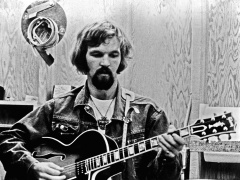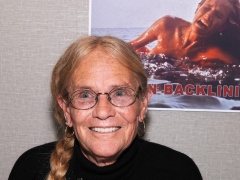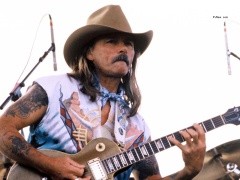
Broadway legend Chita Rivera, a two-time Tony winner who received eight additional nominations, died on Tuesday morning after a brief illness, her publicist announced. She was 91.
The actor-singer-dancer originated the role of Anita in the original Broadway production of “West Side Story,” as well as the title character in “Kiss of the Spider Woman” and the role of Velma Kelly in the original Broadway run of “Chicago.”
As the New York Times noted in reviewing her 2005 career retrospective, “Chita Rivera: A Dancer’s Life,” Rivera’s charisma lay “in her expert technique and in the infectious pleasure she derives from it. She has always been a pro’s pro in a world of exacting judgments and mythic standards.”
Rivera originated an array of iconic roles that other actors would take forward and make their own. But she rarely portrayed these characters outside of stage performance.
Rivera viewed herself as “a chorus dancer who went through the whole race.” “I think I can cope with anything that comes up,” she said.
She was on the path to a classical dance career when in 1952 Rivera accompanied a friend on an audition for the Broadway production of “Call Me Madam.” The friend didn’t get the part of principal dancer but Rivera did. She followed this debut with other Broadway shows, including “Can-Can,” “Seventh Heaven,” “Mr. Wonderful” and “Shinbone Alley.”
But her steadily growing profile sky-rocketed in 1957, when she appeared in “West Side Story.” Conceived, directed and choreographed by Jerome Robbins, with book by Arthur Laurents, music by Leonard Bernstein and lyrics by Stephen Sondheim, the production was revolutionary, merging a jazzy score with a gritty, urban take on “Romeo and Juliet.” The performers wore sneakers and jeans, snapped their fingers and spoke in slang.
Rivera wowed audiences with her vibrant performance as Anita, best friend to the show’s heroine, Maria, and girlfriend to Maria’s brother Bernardo.
She credited Robbins with helping her find her own personality as a dancer. Rehearsals involved Method-style “reality” techniques such as keeping the actors playing the rival gangs separated from one another. News of New York gang activity was posted on bulletin boards for the cast to absorb.
For her part, Rivera found herself delving into character for the first time. Dancers, Rivera said, “do exactly what the choreographer tells you to do. But all of a sudden we had this kind of freedom, which meant you really had to deal with your own emotions and your own mind.”
Now a bona fide star, Rivera followed up “West Side Story” with a starring role in the Broadway productions of “Bye Bye Birdie” (drawing her first Tony nomination) and “Bajour.” She also starred in productions of “Born Yesterday,” “The Rose Tattoo,” “Threepenny Opera,” “Kiss Me Kate” and “Sweet Charity.”
In a rare translation of her stage work to screen, she reprised her role as Nickie in the film version of “Sweet Charity,” starring Shirley MacLaine, in 1969.
In 1975 she originated the role of Velma Kelly in the Broadway musical “Chicago.” In a nod to her work, she made a cameo in the 2002 film version, which starred Catherine Zeta-Jones, Renee Zellweger and Richard Gere.
In 1984 she starred in the Broadway musical “The Rink,” also starring Liza Minnelli. For her role as Anna, she won her first Tony Award for leading actress in a musical.
Her dancing career was dealt a blow in 1986: She was injured in a car accident, her leg broken in 12 places. For other dancers, this may have been a career ender, but not for Rivera, the trooper who could deal with anything. “They tell me my return to Broadway is one of those classic showbiz stories,” she said.
Her Rialto return was a triumphant one, in “Kiss of the Spider Woman,” in 1993. The creative team that helped bring her her first Tony win with “The Rink” — composer and lyricist John Kander and Fred Ebb and librettist Terrence McNally — helped earn her a second Tony for leading actress in a musical.
She wouldn’t return again to Broadway for another 10 years, when she appeared in the revival of “Nine,” as Lilane la Fleur. The role earned her another Tony nomination.
In 2005 she starred in a retrospective of her life, “Chita Rivera: A Dancer’s Life,” that had a three-month run on Broadway. In 2012 Rivera played the Princess Puffer in a Broadway revival of “The Mystery of Edwin Drood,” and in 2014 she starred as the world’s richest woman in a revival of the Kander and Ebb musical “The Visit” at the Williamstown Theater Festival. It subsequently played Broadway. Speaking of her longtime commitment to the musical, she told PvNew, “It takes an audience many many places; it’s rich. I like rich.”
In 2018, Rivera was honored with a third Tony for lifetime achievement in theatre.
Rivera also appeared occasionally in film and on television. She had a recurring role on “The New Dick Van Dyke Show” during its 1973-74 season. More recently, she appeared in the TV series “Will & Grace” and on Internet skein “Submissions Only.” In addition, she appeared in a handful of TV movies, including “Pippin: His Life and Times” (1981) and “Mayflower Madam” (1987).
She also recorded numerous cast albums and three solo albums, including 2009’s “And Now I Swing.”
Born Dolores Conchita Figueroa del Rivero in Washington, D.C., to a Scottish mother and a Puerto Rican father, Rivera was a tomboy from a young age. After the death of Rivera’s father, when she was 7, her mother went to work for the Pentagon. To direct Rivera’s energies, she enrolled her daughter in ballet school at age 11.
Rivera showed talent and at age 15 was accepted into George Balanchine’s School of American Ballet in New York. There, she learned technique she would call upon for the rest of her long career.
“The training I got there,” she said, “was the basis for all the dancing I’ve done ever since. I call upon that technique in every show.”
Rivera was awarded the Kennedy Center Honors in 2002 and received the Presidential Medal of Freedom in 2009.
She is survived by her daughter, singer-dancer-choreographer Lisa Mordente, from her marriage to “West Side Story” co-star Tony Mordente; her siblings Julio, Armando and Lola del Rivero (her older sister Carmen predeceased her); along with her many nieces and nephews.






